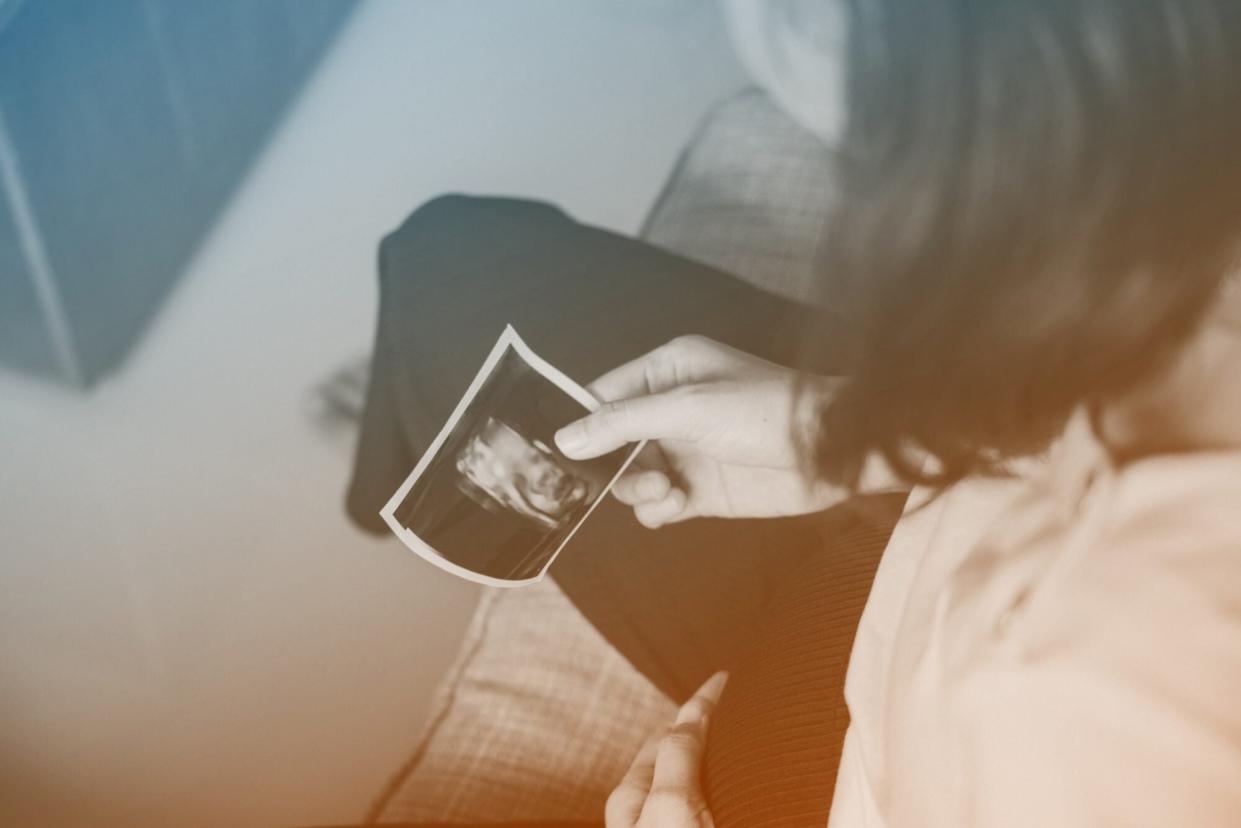Your Chances of Miscarriage During Pregnancy

Getty Images
Miscarriage, the spontaneous loss of a pregnancy within the first 20 weeks, is a devastating occurrence. It’s also not as rare as you may think. We spoke with experts about miscarriage statistics, and we’re answering your most common questions about the odds of miscarriage in your pregnancy.
How Common Are Miscarriages?
It's estimated that 30-40 percent of all conceptions end in miscarriage, according to Helain Landy, M.D., professor and chair of the Department of Obstetrics and Gynecology at Georgetown University Hospital. Oftentimes, though, miscarriages happen so early that the woman isn’t aware that she’s pregnant. Therefore the American College of Obstetricians and Gynecologists (ACOG) claims that only 15-20 percent of known pregnancies end in miscarriage.
"Now that we can detect pregnancy earlier, it's likely that more women may know about having had one than their mothers or grandmothers might have in the past," adds Alice Domar, PhD, executive director of the Domar Center for Mind/Body Health at Boston IVF, assistant professor of Obstetrics, Gynecology, and Reproductive Biology at Harvard Medical School, and author of Conquering Infertility.
When Do Most Miscarriages Occur?
More than 80 percent of miscarriages happen in the first trimester of pregnancy. The most common cause is a chromosomal abnormality that makes the fetus incompatible with life. In fact, these glitches in the fetus's genes account for 70 percent of all first trimester miscarriages, according to the March of Dimes. Other causes might include hormonal imbalances, thyroid disorders, uncontrolled diabetes, immunological disorders, and other maternal health problems.
Miscarriage rates in the second trimester, which take place about 14 to 20 weeks into the pregnancy, are much lower. About 20 percent of second trimester miscarriages are related to chromosomal abnormalities. The rest stem from congenital defects, problems with the placenta, drug and alcohol use, infections, and maternal health conditions, among other things.
RELATED: What Causes Miscarriage to Happen?
It's important to note that most miscarriages are random and unpredictable events. They aren't caused by anything the parents did or didn't do.
Chance of Miscarriage By Week
The good news is that your risk of miscarriage goes way down at the end of the first trimester, according to Michele Hakakha, M.D., FACOG. So, once you reach 14 weeks, the risk of a miscarriage drops dramatically. That’s why most people wait to announce their pregnancy until after 13 weeks’ gestation.
The chances of miscarriage also drop once you have a first-trimester ultrasound to confirm that your fetus is the appropriate size and has a heartbeat.
Risk of Miscarriage in Subsequent Pregnancies
You should know that most women (more than 85 percent) who miscarry are able to get pregnant again and give birth to healthy babies, according to the American Pregnancy Association (APA). Since most miscarriages occur totally randomly, having one does not increase your risk of experiencing a subsequent pregnancy loss. Your chance of miscarrying again is about the same as that of any other mom-to-be—about 15 percent for most women under 35 (miscarriage percentage increases with maternal age).
Even after two miscarriages, your risk of having a third only goes up slightly—and many doctors won't start testing for health conditions that affect miscarriage (like uterine problems, hormone imbalances, or chronic medical conditions) until after you've had two or three.
RELATED: All About Recurrent Miscarriages

